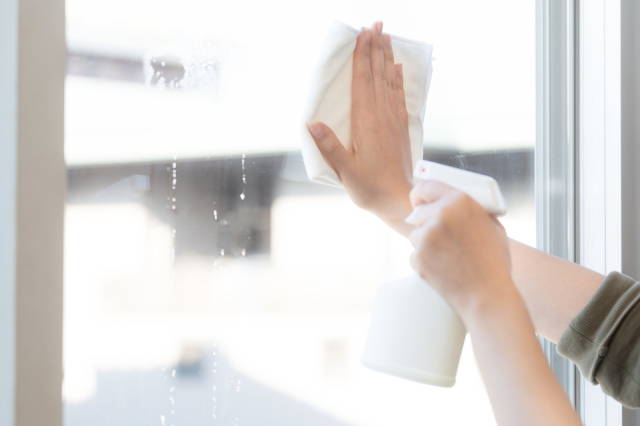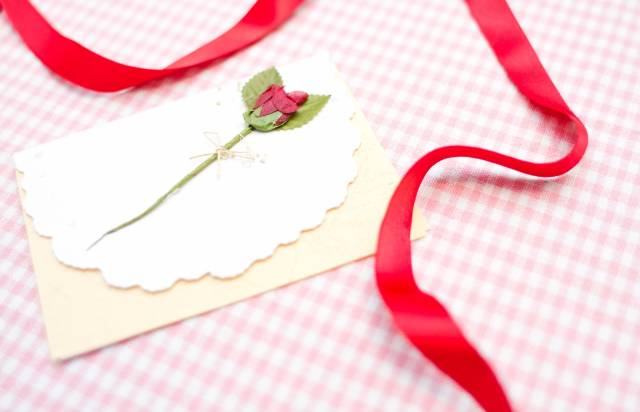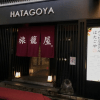
Vague phrasing and fuzzy logic leads to swift backlash.
Nichiigakkan has a number of companies under its corporate umbrella, and one of them is Sunny Maid Service, which provides housekeeping services in Japan. But while Nichiigakkan is headquartered in Tokyo, all of Sunny’s maids are Filipino.
On its website Sunny extolls the virtues of its Filipino employees, describing them as cheerful and energetic, and even boasts that their housekeeping skills are “accredited by the Philippine government.” That’s all quite complimentary, but Sunny was recently criticized for taking things too far when it said that yet another advantage to having a Filipino housekeeper is because customers wouldn’t have to “care” about them in the same way they would a Japanese housekeeper.
▼ A claim that simultaneously hurts the heart and the head.
Before we add any more logs to the fire that Sunny has been roasted on, let’s take a look at the specific phrase the company used: kizukai. Translated literally, kizukai means “to use energy,” but it’s a mental or emotional energy that’s being described, and generally in the sense of making accommodations for someone else, often in a preemptive sense. For example, let’s say you and a friend just finished eating lunch, and you’re thinking about ordering a slice of cake for dessert. But then you remember that your friend is on a diet, so you decide not to order the cake, to avoid making your friend feel bad or giving them any extra temptation to have to fight off. That’s an example of kizukai.
In part of its advertising, Sunny said that one of the merits of its Filipino housekeepers is:
“Because they are foreigners, they won’t drag you into prying conversations, and you don’t have to worry about them seeing your mail or other documents you have in the house. With a Japanese housekeeper, you can’t help feeling conscious of them and worrying, but with our staff, there’s no need for kizukai.”
Sunny was quickly criticized by many who saw the statement, and perhaps much of the problem stems from the quick transition from things the customer wants (i.e. to avoid prying conversations or having their mail/documents looked at by a housekeeper) to the use of kizukai. Again, although there’s often a tiring nuance to kizukai, it still usually corresponds to “care about,” because it refers to thinking about someone else’s situation and doing things for their ostensible benefit. To give one more example, if you want to go out with your friends, but you stay home to take care of your sick spouse without being asked, that’s kizukai.
But there seems to be a missing step in Sunny’s scenario between not caring about your foreign maid and avoiding conversation/mail-snooping, one which could leave the door open to some unpleasant interpretations. Is Sunny saying that it’s OK to completely ignore its staff as they clean your house, not even saying a simple hello, because foreigners don’t need to have their presence acknowledged? Is the reason they won’t look at your mail because they’re not smart enough to read Japanese?
Those don’t seem to have been Sunny’s intended messages, though, since after receiving complaints it promptly removed the passage about kizukai from its advertising and issued an apology through Nichiigakkan’s website, saying:
“Recently, the language used in advertising related to our company Sunny Maid Service made people feel uncomfortable. We deeply apologize.
In response to the feedback we received, we have taken down the advertisement. Going forward, we will work to improve the language used in our company’s advertising.”
Maybe to see what Sunny was going for, you have to flip things around and consider what sort of kizukai might happen with a Japanese housekeeper. A shared cultural background would mean more common experiences and frames of reference to draw from, and some customers might feel more compelled to make small talk with a Japanese maid by asking things like “Where did you buy your ehomaki for the Setubun celebration?” or “What obi style are your children planning to use for their Seijinshiki ceremony?” Likewise, even without purposely trying to read personal papers that are lying about, a Japanese housekeeper, whose native language is Japanese, might instantly comprehend their contents even after just glancing at them by accident, so clients might feel the need to put each and every paper out of sight before a Japanese housekeeper comes over, thinking it would be rude to be shifting them around while he housekeeper is already in their home.
Of course, the counterargument is that the above scenarios are all tied into linguistic and cultural elements, but many foreigners living in Japan adapt to the country’s language and customs. Sunny itself even boasts that its Filipino staff, who can also provide meal preparation services, are trained in Japanese cooking styles.
Taking into consideration that Nichiigakkan owns not one, but two chains of English schools in Japan (Gaba and Coco Juku Jr.), it’s hard to frame the entire organization as being anti-foreigner. Still, if Sunny wants to let potential customers know that its Filipino housekeepers are discreet and unobtrusive, it would probably be simpler for them to focus on those specific benefits that their maids provide, and leave any assumptions about what customers may or may not feel culturally compelled to do out of the discussion.
Sources: Nichiigakkan, IT Media, Sunny Maid Service
Top image: Pakutaso
Insert images: Pakutaso (1, 2)



 Creepy video shows housekeeper who’s either demonically possessed or really wants a new job【Vid】
Creepy video shows housekeeper who’s either demonically possessed or really wants a new job【Vid】 Looking for a job in Japan? New “Sugoi Kawaii” maid cafe in Akihabara now hiring foreigners!
Looking for a job in Japan? New “Sugoi Kawaii” maid cafe in Akihabara now hiring foreigners! “HOW much?!” Professor estimates appropriate salary for housewives, housewife actresses gasp
“HOW much?!” Professor estimates appropriate salary for housewives, housewife actresses gasp Japanese hotel guest leaves pile of erotic manga out, gets pleasant surprise from cleaning staff
Japanese hotel guest leaves pile of erotic manga out, gets pleasant surprise from cleaning staff Missing the maid café? Virtual @Home Café lets you chat with cute virtual maids at home!
Missing the maid café? Virtual @Home Café lets you chat with cute virtual maids at home! Foreigner’s request for help in Tokyo makes us sad for the state of society
Foreigner’s request for help in Tokyo makes us sad for the state of society Japanese city loses residents’ personal data, which was on paper being transported on a windy day
Japanese city loses residents’ personal data, which was on paper being transported on a windy day Should you add tartar sauce to Japanese curry rice? CoCo Ichi makes diners an unusual offer
Should you add tartar sauce to Japanese curry rice? CoCo Ichi makes diners an unusual offer Seaside scenery, history, and so many desserts on Yokohama’s Akai Kutsu【Japan Loop Buses】
Seaside scenery, history, and so many desserts on Yokohama’s Akai Kutsu【Japan Loop Buses】 Ghibli Park now selling “Grilled Frogs” from food cart in Valley of Witches
Ghibli Park now selling “Grilled Frogs” from food cart in Valley of Witches French Fries Bread in Tokyo’s Shibuya becomes a hit on social media
French Fries Bread in Tokyo’s Shibuya becomes a hit on social media Mt. Koya planning to instate visitor’s tax to cope with huge tourist numbers
Mt. Koya planning to instate visitor’s tax to cope with huge tourist numbers Harajuku Station’s beautiful old wooden building is set to return, with a new complex around it
Harajuku Station’s beautiful old wooden building is set to return, with a new complex around it Suntory x Super Mario collaboration creates a clever way to transform into Mario【Videos】
Suntory x Super Mario collaboration creates a clever way to transform into Mario【Videos】 Tokyo capsule hotel’s low month-long rates are an awesome way to sample life in Japan’s capital
Tokyo capsule hotel’s low month-long rates are an awesome way to sample life in Japan’s capital McDonald’s new Happy Meals offer up cute and practical Sanrio lifestyle goods
McDonald’s new Happy Meals offer up cute and practical Sanrio lifestyle goods Japanese ramen restaurants under pressure from new yen banknotes
Japanese ramen restaurants under pressure from new yen banknotes Studio Ghibli releases new action figures featuring Nausicaä of the Valley of the Wind characters
Studio Ghibli releases new action figures featuring Nausicaä of the Valley of the Wind characters New private rooms on Tokaido Shinkansen change the way we travel from Tokyo to Kyoto
New private rooms on Tokaido Shinkansen change the way we travel from Tokyo to Kyoto Red light district sushi restaurant in Tokyo shows us just how wrong we were about it
Red light district sushi restaurant in Tokyo shows us just how wrong we were about it Tokyo Tsukiji fish market site to be redeveloped with 50,000-seat stadium, hotel, shopping center
Tokyo Tsukiji fish market site to be redeveloped with 50,000-seat stadium, hotel, shopping center All-you-can-drink Starbucks and amazing views part of Tokyo’s new 170 meter-high sky lounge
All-you-can-drink Starbucks and amazing views part of Tokyo’s new 170 meter-high sky lounge Beautiful Ghibli sealing wax kits let you create accessories and elegant letter decorations【Pics】
Beautiful Ghibli sealing wax kits let you create accessories and elegant letter decorations【Pics】 Studio Ghibli releases Kiki’s Delivery Service chocolate cake pouches in Japan
Studio Ghibli releases Kiki’s Delivery Service chocolate cake pouches in Japan New definition of “Japanese whiskey” goes into effect to prevent fakes from fooling overseas buyers
New definition of “Japanese whiskey” goes into effect to prevent fakes from fooling overseas buyers Our Japanese reporter visits Costco in the U.S., finds super American and very Japanese things
Our Japanese reporter visits Costco in the U.S., finds super American and very Japanese things Studio Ghibli unveils Mother’s Day gift set that captures the love in My Neighbour Totoro
Studio Ghibli unveils Mother’s Day gift set that captures the love in My Neighbour Totoro More foreign tourists than ever before in history visited Japan last month
More foreign tourists than ever before in history visited Japan last month New Pokémon cakes let you eat your way through Pikachu and all the Eevee evolutions
New Pokémon cakes let you eat your way through Pikachu and all the Eevee evolutions Sales of Japan’s most convenient train ticket/shopping payment cards suspended indefinitely
Sales of Japan’s most convenient train ticket/shopping payment cards suspended indefinitely Sold-out Studio Ghibli desktop humidifiers are back so Totoro can help you through the dry season
Sold-out Studio Ghibli desktop humidifiers are back so Totoro can help you through the dry season Japanese government to make first change to romanization spelling rules since the 1950s
Japanese government to make first change to romanization spelling rules since the 1950s Ghibli founders Toshio Suzuki and Hayao Miyazaki contribute to Japanese whisky Totoro label design
Ghibli founders Toshio Suzuki and Hayao Miyazaki contribute to Japanese whisky Totoro label design Doraemon found buried at sea as scene from 1993 anime becomes real life【Photos】
Doraemon found buried at sea as scene from 1993 anime becomes real life【Photos】 Tokyo’s most famous Starbucks is closed
Tokyo’s most famous Starbucks is closed One Piece characters’ nationalities revealed, but fans have mixed opinions
One Piece characters’ nationalities revealed, but fans have mixed opinions We asked a Uniqlo employee what four things we should buy and their suggestions didn’t disappoint
We asked a Uniqlo employee what four things we should buy and their suggestions didn’t disappoint Princesses, fruits, and blacksmiths: Study reveals the 30 most unusual family names in Japan
Princesses, fruits, and blacksmiths: Study reveals the 30 most unusual family names in Japan Gender-bending maid cafe in Taiwan, where guys dress up in maid outfits to serve you 【Pics】
Gender-bending maid cafe in Taiwan, where guys dress up in maid outfits to serve you 【Pics】 Maid cafe maid is in no mood to put up with complaints about guys who have girlfriends
Maid cafe maid is in no mood to put up with complaints about guys who have girlfriends Crackdown on illegal maid cafes looks to be making maids a rarer sight on streets of Akihabara
Crackdown on illegal maid cafes looks to be making maids a rarer sight on streets of Akihabara School in Tokyo lets students study with cute maids as they learn programming skills
School in Tokyo lets students study with cute maids as they learn programming skills Akihabara maid cafe finds novel way to stay on brand during coronavirus crisis【Video】
Akihabara maid cafe finds novel way to stay on brand during coronavirus crisis【Video】 Tokyo bar offers “babysitting” service for annoying husbands and boyfriends
Tokyo bar offers “babysitting” service for annoying husbands and boyfriends Akiba Dental Clinic: The Akihabara dentist where a moe maid in cosplay cleans your teeth
Akiba Dental Clinic: The Akihabara dentist where a moe maid in cosplay cleans your teeth Japan’s latest awkward invention: the chair-umbrella 【Pics & Video】
Japan’s latest awkward invention: the chair-umbrella 【Pics & Video】 Tokyo luxury hotel offers month-long stays with free breakfasts, might be cheaper than apartment
Tokyo luxury hotel offers month-long stays with free breakfasts, might be cheaper than apartment Amazing Chocolate tools a perfect fit for Japanese Valentine’s Day
Amazing Chocolate tools a perfect fit for Japanese Valentine’s Day Is this the zombie apocalypse?! Horde of walking dead spotted shambling through Yoyogi Park
Is this the zombie apocalypse?! Horde of walking dead spotted shambling through Yoyogi Park Tokyo’s ban on high school girls working in the controversial JK industry goes into effect this summer
Tokyo’s ban on high school girls working in the controversial JK industry goes into effect this summer Pizza keychains from Japan are both cute and practical
Pizza keychains from Japan are both cute and practical The impossible circular staircase is just that… impossible【Video】
The impossible circular staircase is just that… impossible【Video】 Japanese luxury hotel’s new month-long stay plan lets you live Yokohama life with amazing twist
Japanese luxury hotel’s new month-long stay plan lets you live Yokohama life with amazing twist
Leave a Reply